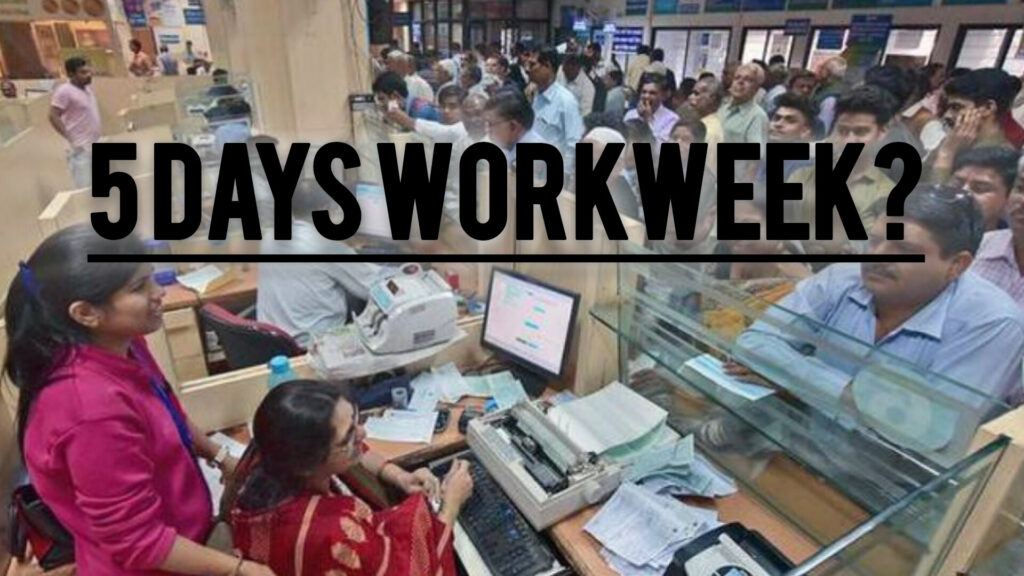5-Day Working for Banks: Importance & Challenges Ahead – Key Details Inside

5-Day Working for Banks: Importance & Challenges Ahead – Key Details Inside
New Delhi, March 2025: The debate over a five-day workweek for banks in India has been ongoing for a long time. Currently, banks operate six days a week, with closures on the second and fourth Saturdays. Bank employees have long advocated for a five-day workweek, and in December 2023, the Indian Banks’ Association (IBA) and bank unions reached an agreement on a proposal to adopt this change. However, this agreement is contingent upon government approval. In March 2024, the IBA and bank unions solidified their commitment to the five-day workweek by signing the 9th Joint Note, which outlined the plan to switch to a five-day workweek with Saturdays and Sundays off.
Although media reports predicted that the finance ministry would approve a five-day workweek for bank employees by the end of December 2024, this hasn’t materialized. The government has yet to set an official deadline for this decision.
In response to the lack of progress, bank unions, united under the United Forum of Bank Unions (UFBU), have announced a two-day nationwide strike beginning on March 24, 2025. This strike aims to pressure the government to meet their demands, which include the implementation of a five-day workweek and increased recruitment across all levels within the banking sector.
Implementing a five-day workweek for banks in India: Benefits, Challenges, and the Path Forward:
Bank employees argue that a five-day workweek would alleviate pressure, providing them with more time for family and friends. They believe this would also boost productivity.
This demand appears reasonable considering that most financial institutions and government entities in India already operate on a five-day workweek. This includes central and state government employees, the Reserve Bank of India (RBI), Life Insurance Corporation (LIC), courts, stock exchanges, most multinational corporations (MNCs), and private companies.
The implementation of a five-day workweek for banks across India’s vast and diverse landscape presents several challenges.
First, approval from the Reserve Bank of India (RBI) is crucial. Second, the potential disruption to seamless banking services must be addressed. Third, achieving a mutual agreement between employees and management on working hours, salaries, and operational changes is essential for a smooth transition.
To mitigate potential service disruptions, bank employees will work 40 minutes extra each day to compensate for the shorter workweek, ensuring uninterrupted customer service.












